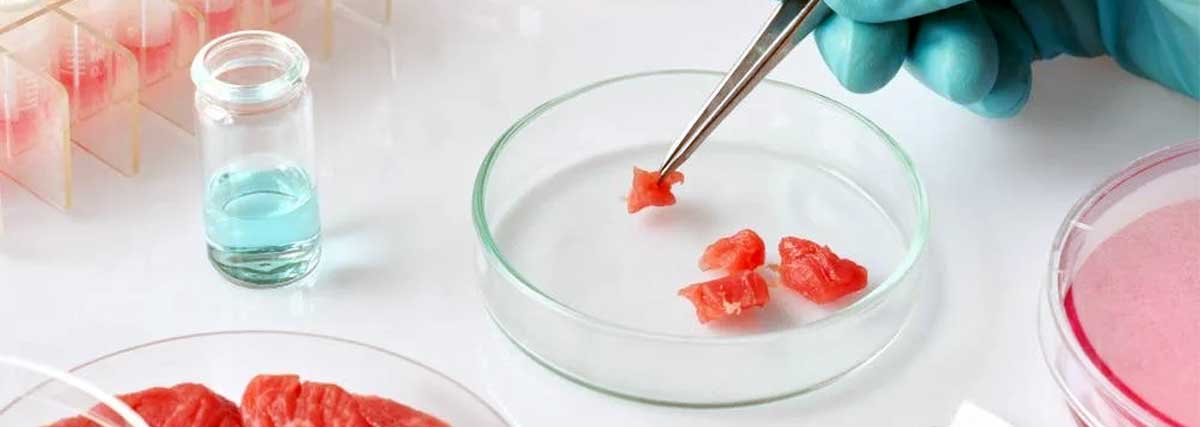It appears that a new legislative proposal in Florida has ignited a debate over the future of food and the role of technology in meat production. State Rep. Tyler Sirois recently introduced a bill seeking to ban the sale of cultivated or lab-grown meat in Florida. This controversial move comes as the U.S. Department of Agriculture has cleared companies like Upside Foods and Good Meat Inc. to bring this innovative product to market nationwide.
Lab-grown meat is produced by cultivating animal cells in a controlled laboratory environment without raising and slaughtering animals. Supporters tout its potential to deliver the experience of conventional meat while dramatically reducing the environmental impact of livestock production.
However, Rep. Sirois views this technology as an “affront to nature” and reflects broader skepticism about technological advances in food systems. Agriculture Commissioner Wilton Simpson joined in questioning the ethics and safety of manipulating animal cells in a lab.
On the other side, advocates like Josh Tetrick of Eat Just Inc. argue cultivated meat could conserve tremendous amounts of land and water otherwise used for animal feed and waste management. Proponents see it as a sustainable solution for meeting global protein demand amid population growth and climate change concerns.
Beyond Florida, national groups have also weighed in. The Organic Consumers Association warned about potential health risks. The National Cattlemen’s Beef Association raised labeling and production integrity concerns. Others challenge whether lab-grown products should legally qualify as meat at all.
This proposed legislation in Florida brings broader ethical, regulatory, and scientific questions around cultivated meat to the forefront of public discourse. It exemplifies the tensions that can arise when new food technologies challenge tradition and convention. Striking the right balance between innovation and time-honored agriculture practices will be key in determining the future of our food systems.
Some key perspectives in this debate include:
- Lab-grown meat supporters tout its potential for dramatically reducing the environmental impact of meat production while delivering a comparable experience to conventional meat.
- Skeptics like Rep. Sirois view lab-grown meat as “an affront to nature” and question the ethics and safety of manipulating cells.
- National groups have raised concerns around potential health risks and proper labeling.
- Some challenge whether lab-grown products even qualify as meat.
As lab-grown meat nears commercialization, its producers will need to continue demonstrating its safety and sustainability benefits to win over skeptics. Meanwhile, policymakers have the opportunity to develop balanced regulations that encourage promising technologies while upholding standards. If the various stakeholders can find common ground, innovations like cultivated meat could transform tomorrow’s food supply in a positve way.
Exactly What is “Cultivated” or Lab-Grown Meat?
“Cultivated” or lab-grown meat represents an innovation in food technology. It involves producing meat directly from animal cells in a controlled laboratory environment, without the need to raise and slaughter animals.
This process begins by harmlessly extracting muscle cells or stem cells from an animal. The cells are then nurtured in a nutrient-rich medium where they grow and multiply. They eventually form muscle tissue – the main component of meat as we know it.
This method of meat production is seen as a sustainable alternative to traditional livestock farming. It significantly reduces the need for land, water, feed crops, and other resources. Cultivated meat also addresses concerns related to animal welfare and the environmental impacts of conventional meat production. These include issues like greenhouse gas emissions, deforestation, and pollution associated with industrial animal agriculture.
The technology behind lab-grown meat is still evolving, and production costs remain high. While cultivated meat has been approved by regulators, it’s not yet widely available to consumers. Ongoing discussions around lab-grown meat focus not just on cost and scalability, but also important ethical, legal, food safety, and labeling considerations.
As this promising industry progresses, cultivated meat has the potential to profoundly transform how we approach meat production and consumption in the future – in a way that is better for both human and environmental health.

